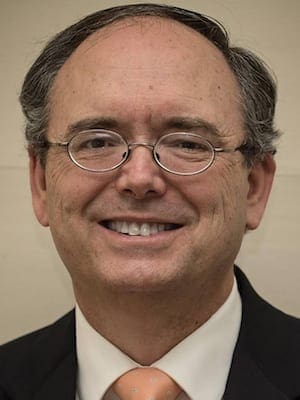The actor who portrayed George Bailey in the classic 1946 film “It’s a Wonderful Life” died on Friday.
Now some are thinking, “Wait a minute—Jimmy Stewart died a long time ago.” Stewart in fact died in 1997. Stewart, who is numbered along with Cary Grant, Henry Fonda and Humphrey Bogart as one of my favorite actors of all time, was absolutely wonderful as the adult George Bailey.
But today I’m talking about Robert J. Anderson, who, when he was 12, played the young George Bailey in some of the flashback scenes in which Clarence the angel is being shown the events of George’s life that have led up to the crisis that lies at the heart of the film.
There are enduring lessons for life in those scenes.
In one scene, George jumps into a freezing lake to save his younger brother Harry from drowning. The selfless act costs George the hearing in one ear. Later, that ear will keep George out of the military in World War II while Harry will become a highly decorated pilot. You just never know what great good you are doing for the world when you do something good for one person. While “It’s a Wonderful Life” is not a “Christian” movie, there is nonetheless something very Christian about being grateful that you could pave the way for someone else’s glory.
In another scene, George saves the career and reputation of the druggist Mr. Gower. Gower–upset and drinking because of the unexpected news that his son has died–accidentally puts poison in some capsules intended for a diphtheria patient. George, realizing what has happened, does not deliver the medicine. Mr. Gower is at first very angry with George, even slapping him on the head. But when Gower realizes what he had done, he asks George to forgive him.
One of the most touching scenes in the film is of Gower and George embracing, Gower repeating “Oh George, oh George” and George saying, “I promise I’ll never tell a soul, Mr. Gower,” which he doesn’t. In this day when scandal reigns and when people reveal too many details of their lives and want to know too many details of the lives of others, we would do well to learn the lesson that sometimes–not all the time, to be sure, but sometimes–we do well by an individual and by everyone else if we keep our mouths shut.
Finally, there is the scene in which George goes to see his father at the Bailey Brothers Building and Loan. He walks in on a confrontation between his father and Mr. Potter, the richest and meanest man in town. When Potter says something derogatory about Mr. Bailey, George interrupts, telling Potter that he can’t talk that way about his father because his father is the biggest man in town. Hopefully, there will always be children (and adults) who understand that true greatness is not found in wealth or power but rather in goodness and fairness and kindness. George Bailey understood. He knew his father was a great man.
I’ll never forget those scenes. I am grateful to Robert Anderson for helping to create them. He had a fine adult career as an assistant director and production manager. But I’ll always remember him as young George Bailey.
Goodbye, Mr. Anderson, and thank you.
Michael Ruffin is pastor of The Hill Baptist Church in Augusta, Ga. This column is from his blog.

